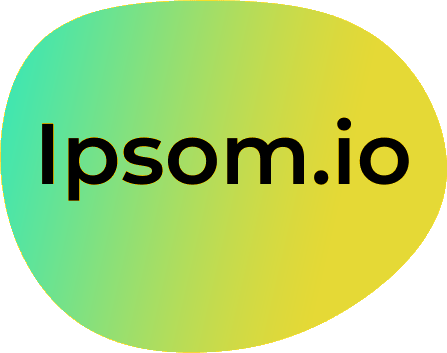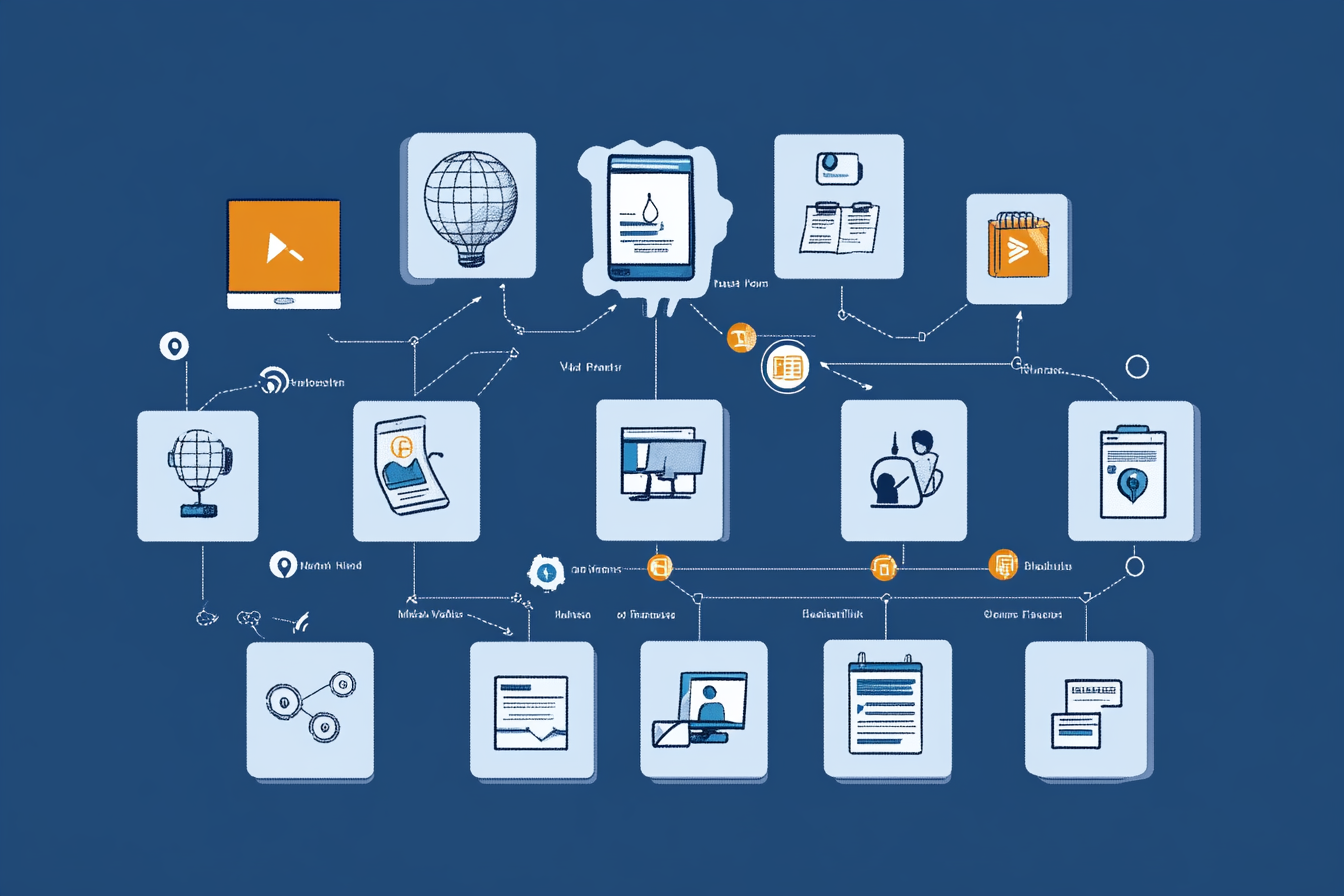Marketing automation tools have become an essential part of modern marketing strategies, as they help businesses streamline workflows and automate repetitive tasks. Approximately 56% of businesses are currently using marketing automation tools, a number that is steadily growing. This blog will explore the features, benefits, examples, and key considerations for companies looking to implement marketing automation.
Key Takeaways
- Growing Adoption: 56% of businesses use marketing automation tools.
- Efficiency Gains: Marketing automation helps streamline workflows and reduces repetitive tasks, increasing overall efficiency.
- Personalization: Effective tools collect data for more personalized marketing campaigns, leading to improved conversion rates.
- Key Features: Important features include email actions, CRM updates, drip sequences, and lead scoring.
- Factors to Consider: Evaluate ease of use, integration with existing tools, pricing, and reporting capabilities when choosing a tool.
Explore the benefits of automation with ipsom.io.
Understanding Marketing Automation Tools
- Marketing Automation Tools: Essential for modern businesses to streamline marketing efforts.
- Software Solutions: Designed to automate repetitive marketing tasks and manage multiple assets and campaigns efficiently.
- Enhanced Marketing Strategies: By leveraging these tools, businesses can optimize their workflows.
Definition and Importance
- Task Automation: Marketing automation tools help automate tasks such as:
- Email campaigns
- Social media posts
- Lead management
- Benefits of Organization: These tools allow for better organization and improved consistency in marketing efforts.
- Effective Marketing Approach: Understanding the importance of these tools is crucial for engaging and reaching target audiences effectively.
Benefits of Marketing Automation
- Increased Efficiency: One of the primary advantages, as teams can streamline workflows and save time.
- Focus on High-Level Projects: Automation allows teams to reduce manual work and concentrate on strategic initiatives that drive growth.
- Improved Conversion Rates: Data collected through automation tools leads to:
- More personalized marketing efforts
- Better engagement
- Ultimately, higher sales
By implementing marketing automation tools, companies can enhance their operational efficiency and significantly improve their marketing outcomes.
Key Features of Marketing Automation Tools
Marketing automation tools offer a variety of key features that enhance efficiency and effectiveness in marketing strategies. Understanding these capabilities can help businesses choose the right tool for their needs.
Common Features
- Email Campaigns: Automate key actions like welcome sequences and nurturing campaigns to maintain engagement with leads and customers.
- CRM Integration: Ensure smooth updates and management of customer relationships for better communication and tracking.
- Drip Campaigns: Engage leads over time with sequenced emails, increasing the chances of conversion.
- Lead Scoring: Prioritize leads by ranking them based on their engagement levels, allowing teams to focus on the most promising prospects.
- SMS Marketing: Extend outreach with SMS channels, offering another layer of engagement with your audience.
Notable Features of Top Tools
- Workflow Builders: Simple drag-and-drop functionality allows users to set up automation processes easily.
- A/B Testing Capabilities: Optimize campaigns using data-driven decision-making to identify the most effective strategies.
- User Activity Tracking: Analyze engagement metrics to improve targeting and personalization of marketing efforts.
- Comprehensive Reporting and Analytics: Effectively monitor campaign performance and return on investment (ROI) to inform future strategies.
These features form the backbone of effective marketing automation tools, driving better results and ensuring businesses can concentrate on high-level strategies.
Evaluating Marketing Automation Tools
Choosing the right marketing automation tool is vital for success. Many factors come into play when making this decision. Here are key considerations to ensure you pick the best tool for your business needs.
Key Factors to Consider
-
Ease of Use: Opt for tools with intuitive interfaces to reduce the learning curve. This ensures that team members can utilize the features without heavy reliance on customer support.
-
Integrations: Confirm that the tool integrates well with your current systems, such as your CRM and content management platforms. Smooth integrations save time and enhance data sharing.
-
Pricing: Assess the tool’s pricing structure. Consider your budget and the value it offers. Look for free trials or entry-level plans to help gauge effectiveness without a large commitment.
-
Analytics and Reporting: Robust analytics capabilities are essential. Ensure the tool provides comprehensive reports on campaign performance, helping you track effectiveness and ROI.
-
Limitations: Be aware of any constraints on contacts, emails, or actions per month. Understanding these limitations helps you plan and avoid unexpected costs or interruptions.
Recommendations for Selecting Tools
-
Test Before Commitment: Utilize demos or free trials to evaluate different tools. This hands-on experience allows you to identify the best fit for your marketing strategies.
-
Focus on Specific Needs: Prioritize tools that address your immediate requirements instead of opting for all-in-one solutions. Targeted tools often provide more relevant features for your business.
By carefully evaluating these aspects, you can choose a marketing automation tool that enhances your marketing efforts and drives greater results.
Popular Marketing Automation Tools
In today's competitive landscape, choosing the right marketing automation tools is crucial for success. Understanding the options available can help businesses effectively streamline their marketing efforts. Here are some leading tools that cater to various needs.
Overview of Leading Tools
-
HubSpot
- Extensive features and a premium solution.
- Pricing: Starts from $800/month.
- Best for larger enterprises looking for all-in-one capabilities.
-
ActiveCampaign
- Known for its comprehensive AI capabilities.
- Pricing: Starts from $29/month.
- Great choice for small to medium-sized businesses focused on personalized marketing.
-
Brevo
-
An affordable option with a free plan available.
-
Pricing: Starts at $8/month.
-
Suitable for startups and small businesses.
-
Omnisend
- Ideal for eCommerce with budget-friendly options.
- Pricing: Starts from $16/month.
-
Mailchimp
- Primarily an email marketing tool.
- Offers a free plan for up to 500 contacts.
- Accessible for smaller companies.
Categorized Examples
-
Email Marketing Tools
- Mailchimp
- Automizy
- Drip
- Focus on targeted email campaigns.
-
Social Media Automation Tools
- Hootsuite
- Buffer
- Sprout Social
- Manage social efforts effectively.
-
Customer Journey Automation Tools
-
LeadSquared
-
Customer.io
-
Act-On
-
Nurture leads through their journeys.
- Pricing Automation Tools
- Prisync
- Wiser
- Skuuudle
- Manage prices efficiently.
By evaluating these tools based on your specific needs, you can enhance your marketing strategies with greater efficiency and effectiveness.
Implementing Marketing Automation
Successful implementation of marketing automation requires careful planning and execution to ensure maximum efficiency and effectiveness.
Steps for Successful Implementation
First, identify the team members responsible for managing and utilizing automation tools. This creates accountability and clarity right from the start. Next, establish clear marketing strategies that complement automation efforts. These strategies should define what goals you want to achieve and how automation can assist in reaching them. Finally, ensure adequate budget allocation towards tools that genuinely enhance efficiency and meet your specific needs.
Challenges and Solutions
Common mistakes include investing in all-in-one solutions rather than selecting targeted tools that focus on specific objectives. To avoid this, pinpoint essential features that align with your marketing goals. Research each tool's capabilities carefully, ensuring they fit your strategy rather than opting for a product with unnecessary functions. This strategic approach helps mitigate challenges and maximizes the utility of your marketing automation tools.
Future of Marketing Automation
The future of marketing automation is bright and full of exciting possibilities. Businesses are continuously seeking ways to enhance their marketing strategies as technology evolves. Key factors contributing to this transformation include:
- Integration of Artificial Intelligence (AI): A significant driver in the evolution of marketing automation.
Trends in Marketing Automation
-
AI Integration:
- Streamlines processes and provides deeper insights.
- Enhances data analysis capabilities.
- Facilitates predictive marketing and better personalization.
- Adapts marketing efforts to rapidly changing customer preferences.
-
Personalization Focus:
- Increasing demand for tools that allow tailored marketing experiences.
- Emphasis on:
- Personalized content
- Targeted campaigns
- Customized customer journeys
- Companies will prioritize tools that enhance user experience and engagement.
Conclusion
The landscape of marketing automation is evolving quickly. To gain a competitive edge, companies must:
- Leverage new technologies and trends.
- Focus on:
- AI integration
- Personalized marketing approaches
This focus will lead to improved customer relationships and better overall outcomes.
FAQ
What are marketing automation tools?
Marketing automation tools are software solutions designed to automate repetitive marketing tasks. They enable businesses to streamline workflows, manage campaigns, and enhance customer engagement efficiently.
How do marketing automation tools enhance efficiency?
These tools reduce manual tasks and help teams focus on strategic initiatives. Automation of processes such as email marketing, social media posting, and lead nurturing leads to significant time savings and increased productivity.
What features should I look for in a marketing automation tool?
Look for essential features like email campaigns, CRM integration, drip campaigns, and lead scoring. Important functionalities such as workflow builders, A/B testing, and analytics should also be considered.
How can I choose the right marketing automation software for my business?
Evaluate tools based on ease of use, integrations, pricing, and reporting capabilities. Testing through demos or free trials can help ensure you select a tool that aligns with your specific needs.
Can marketing automation integrate with other tools I already use?
Yes, many marketing automation tools offer integration options with existing systems like CRMs, content management systems, and other marketing tools, enhancing their overall functionality.
What is the difference between email marketing and marketing automation?
Email marketing focuses primarily on sending emails to promote products or services. In contrast, marketing automation encompasses a broader range of activities, automating multiple marketing channels and workflows beyond just email.
Are there free marketing automation tools available?
Yes, several marketing automation tools offer free plans or trials, allowing businesses to explore functionalities without immediate financial commitments. Examples include Mailchimp and Brevo.
How can marketing automation improve customer engagement?
By personalizing messages and automating communication, marketing automation helps engage customers more effectively. This leads to higher response rates, increased customer loyalty, and ultimately, improved conversion rates.
What common mistakes should I avoid when implementing marketing automation?
Avoid investing in all-in-one solutions that may offer unnecessary features. Instead, focus on tools that address your specific marketing needs and ensure all team members understand how to use the selected platform effectively.
How do I measure the success of my marketing automation efforts?
Track metrics such as conversion rates, engagement levels, and ROI through the analytics provided by your marketing automation tool. Regular analysis of these metrics can guide improvements and enhance results.







